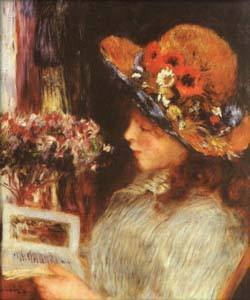
Directions: After reading the lecture, answer one of the main questions, which will appear in bold. This question is due no later than midnight on the night of July 15. Following that will be other questions, in black, which you should read and think about--they may help you answer the main question. However, you are not required to answer these questions in writing.
Your responses to other students' answers are due by midnight on July 16. Remember: in order to get the full 20 points, you MUST respond thoughtfully to at least 2 other people's postings. This set of discussion questions is worth a possible 20 points.
Late answers receive 0 points, so post early :)
We will be using the Canvas Discussion Board for this class. Click on the link below to get to the LACCD portal, sign in, and then click on the link for Canvas in the right column. This will take you to the Canvas dashboard. From there, click on the square with the name of our class. Once you've entered the class, you will find the "Discussions" link on the left side of the screen:
Mary Shelley, Frankenstein
1. In the novel, the monster promises he will go away and never do any more harm if only Dr. Frankenstein will make him a wife. Dr. Frankenstein agrees, then later reneges on his promise. Do you think he should have made the monster a wife?
2. Some critics have argued that Victor Frankenstein can be seen as an analogy for God, and his monster as an analogy for human beings. Thus, they say, Mary Shelley is implying that there is no God--or if there is, he has turned his back on human beings. Do you agree that this was Mary Shelley's intended message in the novel?
- The novel begins with a series of letters from the captain of a ship to his sister. If this is a story about Dr. Frankenstein and his monster, how is the captain's story relevant?
- Why is Victor's childhood described? What does it contribute to our knowledge about him?
- Why do Victor and Captain Walton become such close friends?
- How does Victor become interested in alchemy? What is it about alchemy that appeals to him? (And why does natural science not hold much interest for him?)
- When Victor arrives at University, he is not impressed by M. Krempe, but he is taken with M. Waldman. Why?
- Victor advises the reader, "Learn from me...how dangerous is the acquirement of knowledge..." Later he warns Capt. Walton not to pursue glory at the expense of all else. Does Victor really believe this advice and live by it himself?
- How does the author let the reader know that Victor's obsession with creating life is unhealthy?
- Why is Victor suddenly horrified when his creation comes to life?
- What is your reaction to Victor's feelings about his monster?
- After William is murdered, Justine is accused, convicted, and executed. Why does Victor allow this to happen? Why does Mary Shelley include this incident in the novel? Wouldn't it be enough to have the monster kill the little boy? What is her point in having another person falsely accused?
- How does Nature affect Victor at various times during the story?
- How does the death of William affect Victor's feelings about his family and about Elizabeth?
- When Victor finally meets the monster, how does he feel about him? Why does he agree to listen to his story?
- What is the monster's story? Does he deserve any sympathy? He blames his crimes on Victor; is he justified in doing so?
- How does Victor feel about Henry Clerval?
- Why does Victor decide not to make the monster a wife, after all?
- How does the monster get revenge for the destruction of his wife?
- When Victor finally does tell a magistrate about the monster, he is not believed. Enraged, Victor says to him, "...how ignorant art thou in thy pride of wisdom!" How is this ironic?
- When Captain Walton's men demand that he turn back, Dr. Frankenstein reprimands them, telling them that they should think, not of their own safety, but of the glory awaiting their efforts. Yet, he tells Captain Walton to avoid ambition and seek tranquility. Which advice does he really mean?
- The monster says that now that his creator is dead, he has no reason to live, and plans to kill himself. Why would Mary Shelley put such words into his mouth? Do you believe him?